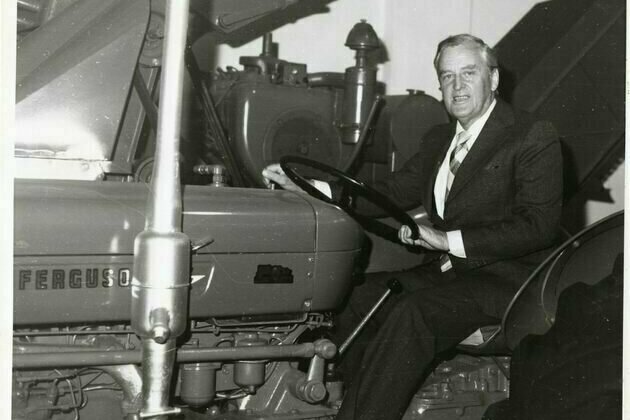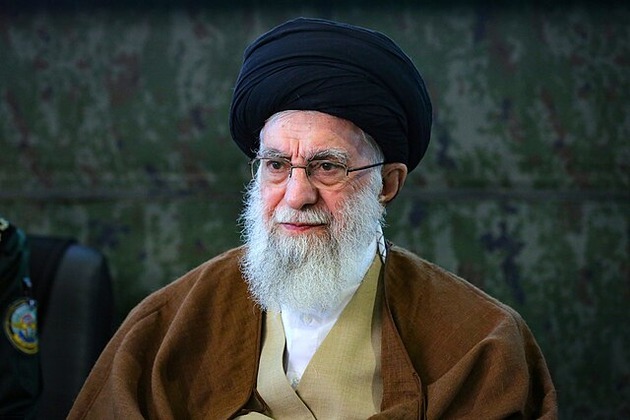Joh: The Last King of Queensland captures Bjelke-Petersen's political persona - but omits key details of the story
The Conversation
25 Jun 2025, 04:17 GMT+10

The new documentary film Joh: The Last King of Queensland offers a dramatised account of Sir Joh Bjelke-Petersen's premiership from 1968 to 1987.
Directed by Kriv Stenders, using reenactments (Bjelke-Petersen is played by Richard Roxburgh), archival footage and contemporary interviews, the film portrays him as a complex and polarising figure.
We are given a man who is socially conservative, economically ambitious and politically divisive. A man who profoundly shaped Queensland's governance and development.
But while the film effectively captures his popular appeal and role in the state's economic transformation, it simplifies key aspects of his political ascent.
In particular, it doesn't capture the complexities of electoral mechanics, internal party maneuvering and the influence of the public service.
We start with Bjelke-Petersen's rural upbringing. Stenders emphasises the formative impact of his Lutheran faith, personal abstinence, strong work ethic and family values. These would be foundational to his leadership style.
Roxburgh highlights Bjelke-Petersen's rhetorical simplicity. He presented himself as an advocate for "ordinary" Queenslanders, especially in rural and conservative communities.
A central critique of Bjelke-Petersen was his manipulation of Queensland's electoral system.
The film illustrates how electoral malapportionment advantaged rural constituencies, fuelling the National Party's dominance. But this treatment lacks nuance.
Former MP David Byrne's claim that Bjelke-Petersen remained premier solely due to the electoral system is presented uncritically.
The National Party outpolled the Liberals from 1977 on. Labor failed to win a statewide majority until 1989, under boundaries drawn by Bjelke-Petersen's administration in 1986.
The narrative also omits the fact that electoral bias originated under earlier Labor governments.
While Roxburgh's character mentions this legacy, his claim that there was "not a peep" of dissent overlooks sustained criticism from opposition leader Frank Nicklin throughout the 1950s.
The film omits several key figures whose contributions were instrumental to the success of the Bjelke-Petersen era.
The organisational acumen of National Party president Robert Sparkes and state secretary Mike Evans played a critical role in constructing a highly efficient party apparatus.
Through the coordination of financial resources and the strategic mobilisation of grassroots support, Sparkes and Evans substantially reinforced Bjelke-Petersen's leadership and electoral resilience.
Also excluded are prominent members of the premier's personal staff, such as media advisor Allen Callaghan and policy researcher Wendy Armstrong. Both contributed significantly to shaping public messaging and policy development.
We do not hear about the contributions of senior public servants such as Sydney Schubert, coordinator-general, and Leo Hielscher, under-treasurer.
Schubert was instrumental in expediting infrastructure development across the state. Hielscher ensured Queensland maintained its AAA credit rating and successfully attracted international investment.
These administrative achievements were central to the state's economic growth.
Bjelke-Petersen was frequently detached from the formal processes of cabinet and Westminster governance. But his reliance on a capable and loyal bureaucracy underscores a distinct, if unconventional, mode of operation.
This model, characterised by strong administrative delegation, contributed to the longevity and effectiveness of his premiership.
The film addresses his opposition to the Whitlam government and his promotion of states' rights. Both cemented his popularity. It highlights his decision to abolish death duties - a move that allowed him to present a low-tax, pro-development agenda.
Bjelke-Petersen's authoritarian style is explored through archival footage of the 1971 protests during South Africa's rugby tour of Australia. But the film fails to contextualise electoral reaction.
The government won seats, including central Brisbane and Maryborough, in by-elections held at the height of the protest activity.
His later suppression of civil liberties, particularly against students, unions and Indigenous activists, is acknowledged.
The depiction of the "Joh for PM" campaign presents it as a significant strategic miscalculation. Stenders illustrates the limits of Bjelke-Petersen's political judgement beyond the state level.
Investigative journalist Chris Masters is interviewed about his role in creating the Four Corners expose which served as a catalyst for the Fitzgerald Inquiry (1987-89).
This inquiry uncovered extensive political and police corruption. It exposed entrenched institutional malpractice, and contributed decisively to the erosion of Bjelke-Petersen's political legitimacy.
Such corruption was longstanding and predated Bjelke-Petersen's tenure. It flourished under his administration due to insufficient oversight and a permissive political culture.
While the film suggests that Bjelke-Petersen was never personally corrupt (and he was never convicted of any criminal offence) it omits a pivotal episode in his political downfall.
According to journalist Matthew Condon, Springwood MP Huan Fraser publicly accused the Premier of corruption during a 1987 National Party meeting.
Fraser's confrontation, reportedly triggered by Bjelke-Petersen's push to approve what was then the world's tallest building, marked a significant rupture within the party.
The proposed project symbolised growing concerns about impropriety and unchecked executive power during his premiership.
Joh: The Last King of Queensland succeeds in capturing the emotional resonance of Bjelke-Petersen's political persona. But it stops short of delivering a fully nuanced account.
His legacy continues to polarise. To supporters, he remains a visionary who championed economic growth and conservative values. To critics, he presided over an era of democratic erosion, civil rights suppression and entrenched corruption.
His story reflects the enduring tension between executive authority and democratic accountability in modern Australian political history.
Joh: The Last King of Queensland is on Stan now.
 Share
Share
 Tweet
Tweet
 Share
Share
 Flip
Flip
 Email
Email
Watch latest videos
Subscribe and Follow
Get a daily dose of Australian Herald news through our daily email, its complimentary and keeps you fully up to date with world and business news as well.
News RELEASES
Publish news of your business, community or sports group, personnel appointments, major event and more by submitting a news release to Australian Herald.
More InformationInternational
SectionKhamene remains in hiding as clerics fast-track succession plans
DUBAI, U.A.E.: Iran's top clerics are quietly accelerating succession plans for Supreme Leader Ayatollah Ali Khamenei, who was threatened...
Monsoon floods batter China, raising climate concerns
BEIJING, China: Extreme weather is once again testing China's resilience, as intensifying monsoon rains trigger floods across major...
UK and France issue heat warnings as temperatures climb
LONDON/PARIS: British and French authorities have warned people to stay safe as an early summer heat wave brings unusually high temperatures...
Muslim bloc calls on Israel to sign Nuclear Non-Proliferation treaty
ANKARA, Turkey: Amid rising tensions in the Middle East, the Organisation of Islamic Cooperation (OIC) announced it would form a new...
Trump goes on social media to announce Israel-Iran ceaeefire
WASHINGTON DC, - U.S. President Donald Trump has claimed a ceasefire has been reached between Israel and Iran. He made the claim on...
Confused bot named Alyssia replaces human response on Iranian phones
DUBAI, U.A.E.: British Iranians living in the U.K. are taken aback when they try to reach their families in Tehran on the phone and...
Sydney
SectionIndia first team to lose Test match despite scoring five centuries
Leeds [US] June 25 (ANI): Despite scoring five centuries in the first test at Headingley, Leeds, India became the first team to lose...
West Indies, Australia announce playing 11 for opening test at Barbados
New Delhi [India] June 25 (ANI): West Indies and Australia have announced their playing XIs for the opening Test in Barbados, which...
New Zealand announce schedule for their upcoming home fixtures
New Delhi [India] June 25 (ANI): New Zealand have announced their schedule for the upcoming home summer, with a whopping five teams...
Gambhir's dwindling Test run, Pant's winless streak sum up India's defeat at Headingley
Leeds [UK], June 25 (ANI): India's torrid run with head coach Gautam Gambhir at the helm in Test format hit a new low after a record-shattering...
Stokes lauds "unbelievable" Ben Duckett, outlines reason behind England's chase mastery
Leeds [UK], June 25 (ANI): England captain Ben Stokes had special praise in store for Player of the Match Ben Duckett, who weathered...
Gambhir confirms India will stick with 3-match plan for Bumrah, backs "inexperienced" quicks to deliver against England
Leeds [UK], June 25 (ANI): India head coach Gautam Gambhir confirmed that the management won't budge from the three-match utilisation...













